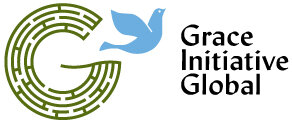A Restorative Afghan Refugee Settlement and Integration Process in the USA
(13 December 2021)
As the Afghan refugees set out to resettled in communities throughout the United States, it is critical for the groups welcoming and facilitating this settlement will ensure an encouraging and meaningful settlement in new communities. This integration process goes beyond the assumption of good will or common know how to help the refugees. It involves a positive and holistic settlement entailing a sensitivity of their culture, religion, and history of the refugee – the actual people concerned.[1] Following the departure from military bases, organizations involved in the settlement processes will oversee inter alia arranging accommodation, clothing, employment, health issues, and immersion into schools. In addition, this settlement process will require essential religious connections and sensitivities, as well as the trauma evaluation and counselling. Further, Afghan families may fear introduction into American societies, fearing prejudice toward Muslims. To this end, those involved in the settlement should possess sensitivity of their experience, with a view to supporting a restorative integration.
In addition to cultural competence and awareness, those involved with the refugees must approach their respective involvement with humility for engagement and trust building.[2] This involves removing biases of relationship of power and privilege. Therefore, the resettlement process involves building emotional safety and trust with the collaboration based on unique needs of the refugees. This healing will include cultural empowerment and the availability of culturally responsive resources within the Islamic community, where they may receive religious guidance and a mosque or a place for daily prayer. It is important to sensitive and respectful of the importance of faith of Islam as a way of life. This could be complicated because of language barriers.
To promote a positive outcome of the resettlement process, which integrates a process of healing,[1] we have organized a webcast on: A Restorative Afghan Refugee Settlement and Integration. The discussion will include expert presentations focusing on the Afghan people, their history, their faith so that the refugee resettlement process is positive and restorative. Invited presenters include:
Program
The Reflection on the History and Resilience of Afghanistan:
Ambassador Ahmad Kamal, (former Permanent Representative of the Permanent Mission of Pakistan to the United Nations, also served as Pakistan Ambassador to France, Switzerland, South Korea, adviser to Grace Initiative Global).
Reflections about Personal and Professional Experience
Mr. Mohammad Qasim Popal, Afghan national, lawyer, settled in Toronto. Served with the UN Mission in Afghanistan in humanitarian coordination for 10 years in Kabul. Estimated Timing: 10:10-10:20
Discussion on Trauma Healing
Karen M. Fondacaro, Ph.D. Professor, Department of Psychological Science, University of Vermont, Director, VPS: Leitenberg Center for Evidence-Based Practice, Director, Connecting Cultures &NESTT. Dr. Fondacaro will discuss trauma evaluation of the first group of Afghan refugees in Vermont.
Mr. Agha Jafri, Al Khoei Foundation, USA; Board Member, Grace Initiative Global.
Mr. Jafri will reflect on the webcast and offer questions to the presenters
Mr. Zahoor Hussain Khan , former interpreter to the US Embassy in Kabul
Theological Reflection:
Canon Walter Brownridge, Vermont Diocese for Cultural Transformation
Moderator
Ms. Yvonne Lodico, Founder, Executive Director, Grace Initiative Global
[1] Richard. F. Mollica. Healing Invisible Wounds: Paths to Hope and Recovery in a Violent World, (Harcourt, 2007).
[1] Jamie D. Aten and Jenny Hwang, eds. Refugee Mental Health (American Psychological Association, 2021), p. 66.
[2] Ibid., p. 60.
